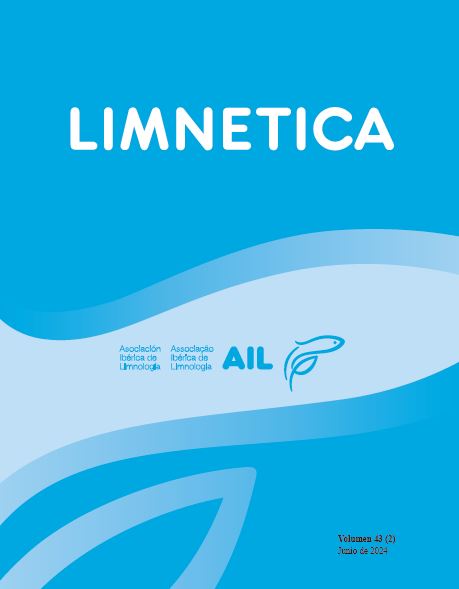MICROPLASTICS IN WATER, SEDIMENTS AND MACROINVERTEBRATES IN A SMALL RIVER OF NW SPAIN
Resumo
Microplastics (plastic particles <5 mm in size) are very common nowadays and ubiquitous in the environment and can cause harm to aquatic organisms. Because plastics are around 300 million metric tons being manufactured each year, MP are very frequent as well. We hypothesise that due to high-density anthropic activity, the urban environment is regarded as one of the major sources of microplastics (MP), this particles might be easily transferred into the riverine areas along the river and through food webs from the habitat to the aquatic organisms. For this reason, we hypothesised that maybe the MPs than be present in all the areas in the rivers, even the heads of the rivers. We defined a study for finding possible MPs in macroinvertebrates in an urban river and knowing their possible impact and evaluate the presence in the aquatic community. We organized a sampling in water, sediments and macroinvertebrates in the Gafos River (NW Spain) during summer 2020 in three different locations as in the head of the river called upstream (G1), in the middle part of the river and upstream of a city (G2) and in the downstream area before the river mouth in the Atlantic Ocean (G3). Different microplastic fibers and particles were found in all water samples and in G2 and G3 sediment samples. The analysis of the different types of microplastics was carried out by Fourier-transform infrared spectroscopy (FTIR-ATR). The majority of microplastics found were polyvinyl chloride (PVC) and polyethylene terephthalate (PET). Microplastics were found in the cases of Trichoptera families like Lepidostomatidae and Limnephilidae, and inside the body of some Odonata families such as Gomphidae. This confirm the presence of MPs in the aquatic organisms and in the habitats in an urban river, however, there are other macroinvertebrates as MP bioindicators that should be further investigated in different freshwater ecosystems worldwide.
Downloads
Publicado
Edição
Secção
Licença
Autores que publicam nesta revista concordam com os seguintes termos:.
Limnetica está licenciado com uma Creative Commons Atribuição-NãoComercial 4.0 Internacional.


